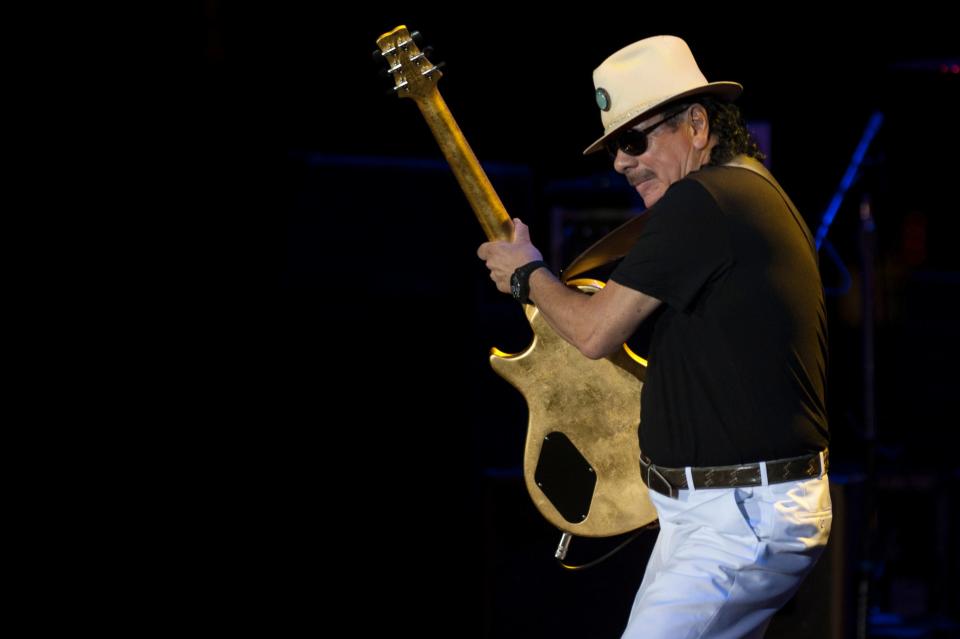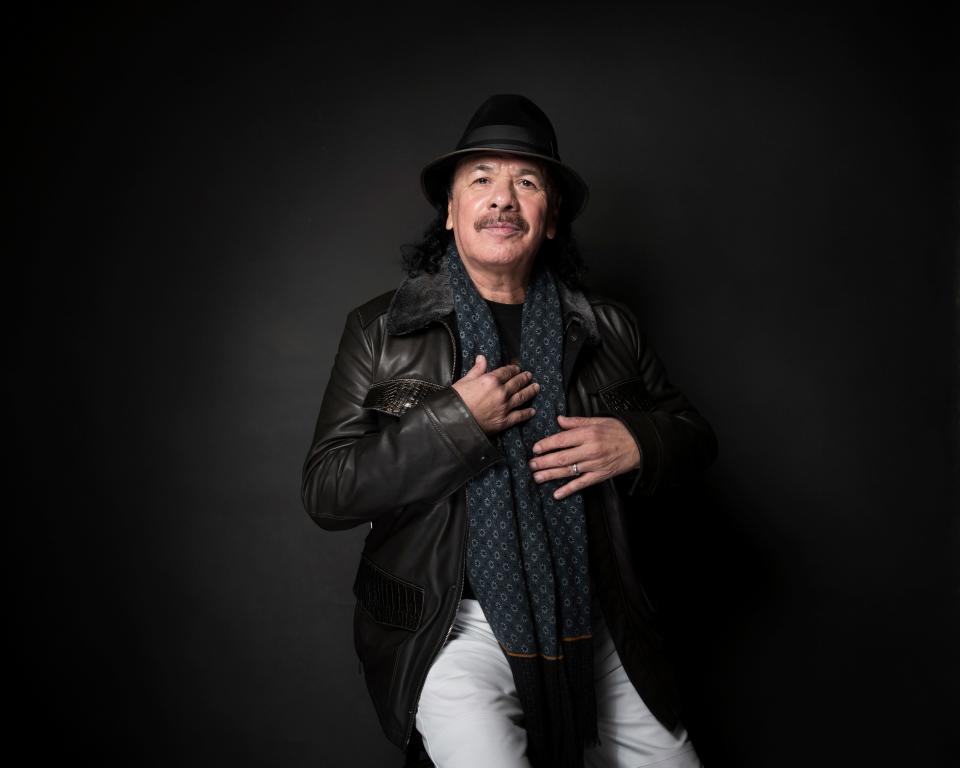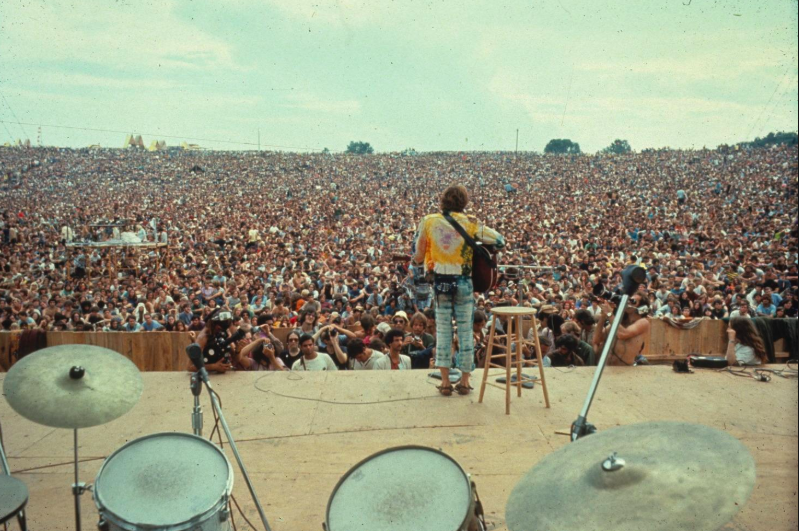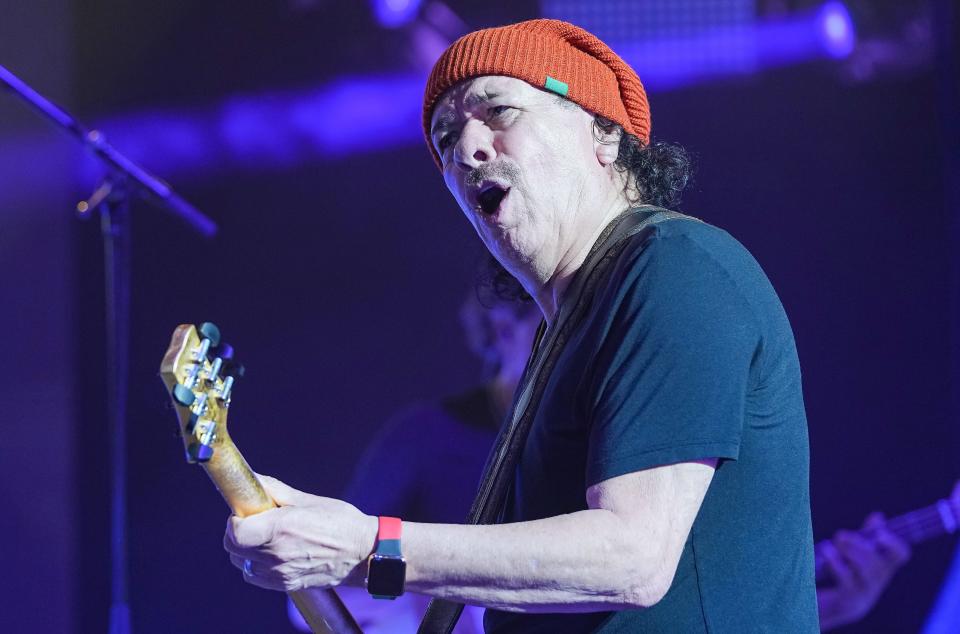Carlos Santana will bring 'oneness' to the North to Shore Festival in June
Carlos Santana has played some festivals.
From BottleRock Music Festival in Napa Valley, to the Crossroads Guitar Festival in Dallas, to the Starlite Festival in Spain, to the granddaddy of them all — the original, legendary 1969 Woodstock Festival in Bethel N.Y.
But he's happy to carve another notch in his belt. "It's never one too many," said Santana.
He's one of over 100 top-tier entertainers, playing three New Jersey cities over three weekends starting June 7, as part of the brand-new North to Shore Festival (N2S), the Garden State's answer to the Texas South by Southwest Festival (SXSW). And why not?

The more festivals, the more music. The more music, the more harmony there is in the world.
"Music helps people to claim back their sense of self-worth," said Santana, speaking from his home in Kauai, Hawaii.
"There's a lot of victim mentality out there," he said. "A lot of people who bought into the wretched-sinners-not-worthy-of-God's-grace. So they're angry, they're miserable, they're lonely, they're sad, they're resentful. When you see them, you know who they are, because they have a lot of negative energy. So we play music to bring unity, harmony, oneness. A deeper sense of self-worth. Basically, healing people from the affliction of fear."
In the event
To be sure, there are other reasons that Santana, playing Newark's Prudential Center on June 21, has been tapped to play a a flagship event that — promoters hope — will make New Jersey a music-lovers' destination, like New Orleans and Austin.
Music of every kind, for every demographic, will be featured over three weekends, in three cities — Atlantic City (June 4 to 11), Asbury Park (June 14 to 18) and Newark (June 21 to 25).

Alanis Morissette with Aimee Mann (June 22, Newark), Demi Lovato (June 16, Asbury), Natalie Merchant (June 25 Newark) , Halsey (June 21 and 22, Newark), Brian Fallon of Gaslight Anthem (June 14, Asbury), Gavin DeGraw & Colby Caillat (June 9, Atlantic City) Jay Wheeler (June 10 Atlantic City), The Smithereens with Marshall Crenshaw (June 17, Asbury), and Southside Johnny (June 23, Newark) are just some of the musical attractions. There will also be comedy, film, workshops, dance parties, TED talks.
But having Carlos Santana play hits like "Evil Ways," "Black Magic Woman," and "Oye Como Va" will be a special kind of benediction for the festival — a through-line to the Woodstock era, when a festival was more than a tourist attraction or revenue-generator.

The experience of being with thousands of people, all grooving to the same tunes, and ingesting the same substances ("stay away from the brown acid!") was meant to be transformational. Music, Santana believes, should empower.
That's why he plays. And that's why he's made Newark a stop on his "1001 Rainbows" tour this summer.
"Our music, like Bob Dylan's 'Blowin' in the Wind,' like Bob Marley's 'One Love,' like the Beatles' 'All You Need is Love,' like 'What's Going On' by Marvin Gaye — you get the point, there's a hundred songs I could name to you — those are the songs that people should sing in schools, and in church. Because those songs remind you that you are destined for greatness."
The Mexican-born Santana brought his guitar chops and his own cultural toolkit (his father had been a Mariachi musician) to San Francisco in the 1960s, where promoter Bill Graham took him under his wing, and where he was exposed to a kaleidoscope of music influences: blues, jazz, Latin, psychedelic rock. These he stirred into a unique brew that was intoxicating to the crowds at Woodstock on August 16, 1969.
A revelation to the audience, yes. But more so for Santana. He, famously, didn't know whether he would get through the set.
Let God take the wheel
"It could have been terrifying," said Santana, who had taken hallucinogens that morning — along with pretty much everybody else at Woodstock. He hadn't expected to play.
Then all of a sudden he got word. There had been a scheduling change. "Go on now, or not at all," he was told.
"I had to trust that my fingers have muscles and my muscles have memories, and they will remember where to go and what to do," he said. "So I just asked God, please help me to stay in time and in tune. It could have been really scary, to be at the peak of mushrooms in front of 150,000 people. I could have pooped in my pants in front of everybody. But I didn't. What happened is, I got out of the way, and the energy flew and I started playing things I didn't know how to play."
That mystical experience, of being suddenly possessed by a high power and finding yourself doing things beyond your own abilities, has been experienced by more than one musician, artist, athlete. "In the zone," Woody Harrelson calls it in "White Men Can't Jump." Santana is a firm believer.

"I had this conversation with Stevie Ray Vaughan one time, and we both agreed that when you play, a big part of the energy that comes into you is the spirit that takes over, and you end up playing things you don't know how to play," he said. "And when you listen back, you go, man, how did I do that? That's because you didn't. The spirit took over. I call it the Holy Ghost, because I believe in God. 'God, you know where I am right now. Please help me.'"
For the long haul
Likely, it's that spiritual grounding that has kept Santana alive and gigging into his 70s — while many of his famous contemporaries, including Jimi Hendrix, Janis Joplin and Jim Morrison, fell tragically by the wayside.
"I think it was the training I got from my mom and dad, from Bill Graham, and from watching many musicians of my age, at that time, who were withering, OD'ing," he said. "What was happening back then was an excess of cocaine, heroin. I kept hearing my mother saying, 'That is not for you.' She said it with such strong conviction that she tattooed it into my whole being. So when I was in a room, or a house, and somebody pulls out 'the greatest thing from Peru,' I'm like, 'That's OK, you can have mine.' They're like, 'Dude, you don't know what you're missing.' I'd say, 'I'm already higher than an astronaut, I don't need it.' "
And if you are planning to have a 50-plus year career, like Santana, that kind of spiritual focus can be handy in another way. No one, after all, could expect you to play "Black Magic Woman" for the 5,000th time with the same freshness and sense of discovery you had in 1970 — right?
Santana can, and does. By deliberately putting his head, each gig, into that first-time-ever space.
"It's a state of mind, a state of grace," he said. "Do you remember the first time you ever got a French kiss? That very first time, when you're 12 or 13. This beautiful lady, for some reason she just walked over and kissed you, and her tongue touches your tongue. And she was drinking rum and Coke, and you can still taste the cherry she was chewing on. And you can recollect, when you close your eyes, the first time this beautiful lady kissed you.
"If you remember the very first time that happened to you, that's how I play every day."
For more information the festival: northtoshore.com
This article originally appeared on NorthJersey.com: Carlos Santana is looking forward to new Garden State festival in June

 money
money 